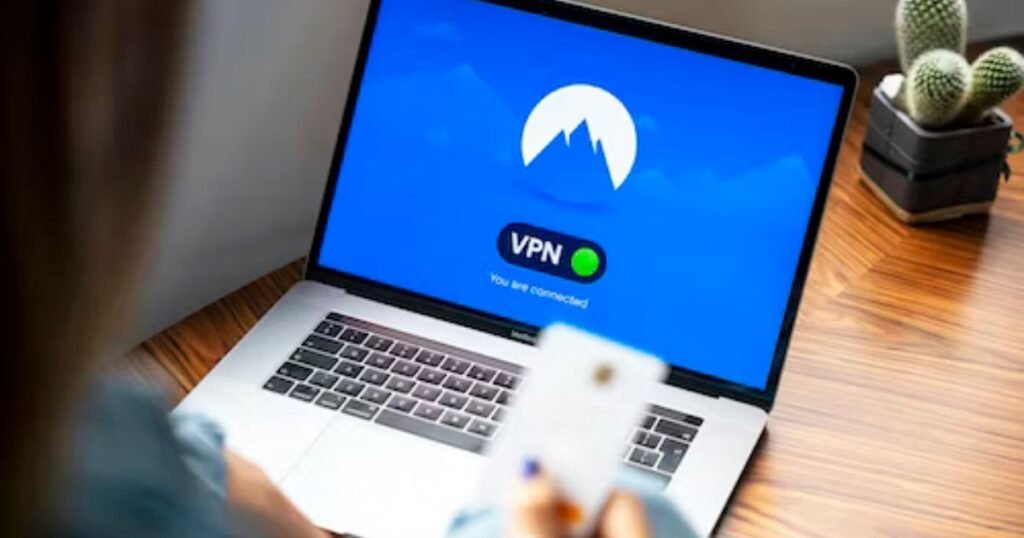Many Websites and Apps are blocked in China. Though China is a developed country, it is also a developing country, as per the recent Foreign Policy report. This country is famous for its hard rules and regulations, and it has one of the strictest laws regarding the internet. Because of the internet laws in China, several websites are blocked and many apps are removed from downloads. We will provide the best 3 VPNs for unblocking Websites and Apps in China.
Websites And Apps Are Blocked In China

Social Media Platforms:
- Facebook: The world's largest social media platform, Fcebook is inaccessible in China, limiting communication and access to global news and information.
- Twitter: China's restrictions prevent access to this microblogging platform, depriving users of real-time updates and social interactions.
- Instagram: Just like other social media platforms China's block on Instagram prevents users from sharing and accessing visual content and engaging with the global community.

- Snapchat: The popular multimedia messaging app is blocked in China, limiting communication and multimedia sharing capabilities.
- Pinterest: The image-sharing platform is inaccessible in China, depriving users of creative inspiration and idea sharing.
- Tumblr: China's censorship measures restrict access to this microblogging and social networking platform.
Communication Apps:
- WhatsApp: China's restrictions block access to this widely used messaging app, limiting international communication and file sharing.
- Telegram: The popular encrypted messaging app is inaccessible in China, hindering secure communication and group interactions.
- Line: China's block on Line prevents users from accessing this popular messaging and voice calling platform.
- Viber: The communication app Viber is inaccessible in China, limiting users' ability to make voice and video calls.
- Signal: China's restrictions prevent access to this encrypted messaging app, limiting secure and private communication.
- Slack: The collaboration and communication platform is blocked in China, impacting team productivity and real-time communication.

Search Engines:
- Google: China's censorship policies block access to Google, including its search engine, maps, email, and other services.
Read: How to access Goggle from China.
- YouTube: China's restrictions prevent access to the world's largest video-sharing platform, limiting content creation and consumption.
- Bing: China's block on Bing restricts access to Microsoft's search engine, impacting search capabilities and information retrieval.
- DuckDuckGo: While intermittently blocked, China's restrictions limit access to this privacy-focused search engine.
Media and Entertainment Platforms:
- Netflix: China's block on Netflix prevents users from accessing the popular streaming platform's vast library of movies and TV shows.
- Hulu: China's restrictions limit access to Hulu, an American streaming platform offering a wide range of popular TV series and movies.
- Twitch: The live streaming platform for gamers is inaccessible in China, preventing access to live gaming content and interactions.
- Vimeo: China's censorship measures restrict access to Vimeo, a popular platform for sharing and viewing high-quality videos.
- The New York Times: China's block on The New York Times limits access to its online news articles and journalistic content.
- BBC: The British Broadcasting Corporation's website and online content are inaccessible in China due to censorship measures.
- Reuters: China's block on Reuters restricts access to its news articles and global reporting.
Productivity and Cloud Services:
- Dropbox: China's restrictions limit access to the file hosting service, impacting cloud storage and file sharing capabilities.
- Google Docs: China's block on Google services includes Google Docs, hindering collaborative document creation and editing.
- Google Calendar: China's restrictions prevent access to Google Calendar, affecting personal and professional scheduling and organization.
- Microsoft OneDrive: China's block on Microsoft's cloud storage service limits access to personal and business files.
- iCloud: China's restrictions affect access to Apple's cloud storage service, impacting data backup and synchronization.
Other Websites and Services:
- Wikipedia: While intermittently blocked, China's restrictions limit access to Wikipedia, a widely used online encyclopedia.
- WordPress.com: China's block on WordPress.com prevents users from creating and accessing websites on this popular platform.
- The Pirate Bay: China's restrictions prevent access to The Pirate Bay, a well-known platform for downloading torrents.
- GitHub: Certain sections of GitHub are blocked in China, limiting access to open-source code repositories.
- SoundCloud: China's restrictions limit access to SoundCloud, a popular platform for sharing and discovering music.
- Quora: China's restrictions restrict access to Quora, a popular platform for asking and answering questions.
The Best VPNs for Unblocking Websites and Apps in China:

Here are the three best VPNs for unblocking websites and apps in China:
Surfshark:
Surfshark is a reliable and popular VPN service that offers robust security features and excellent unblocking capabilities. It utilizes advanced encryption protocols to secure your internet traffic and effectively bypasses China's censorship measures. Surfshark has a large server network, allowing you to connect to servers worldwide and access blocked websites and apps. It also offers features like Kill Switch and MultiHop for enhanced privacy.
NordVPN:
NordVPN is another top-tier VPN service provider known for its strong security features and extensive server network. It employs advanced obfuscation techniques to disguise VPN traffic, making it harder for the Chinese government to detect and block. NordVPN provides a user-friendly interface, fast speeds, and reliable connections, ensuring you can access blocked content in China.
Atlas VPN:
Atlas VPN is a relatively new but promising VPN service that can be effective for unblocking websites and apps in China. It offers a free version with limited features and a premium version with enhanced capabilities. Atlas VPN utilizes secure encryption protocols and provides a simple and intuitive user interface. While its server network may not be as extensive as other VPNs, it can still be a viable option for accessing blocked content.
Frquently Asked Questions
Q: Is it legal to use a VPN in China?
A: While the use of VPNs is not illegal in China, the Chinese government heavily regulates VPN services. Approved VPN providers are required to register with the government and follow certain guidelines. Unregistered VPNs are generally prohibited, but enforcement can vary, and many individuals in China still use VPNs to bypass censorship.
Q: Will using a VPN guarantee access to blocked websites and apps in China?
A: While VPNs are effective tools for bypassing censorship, there is no absolute guarantee that all websites and apps will be accessible. The Chinese government actively targets VPN servers and employs advanced techniques to detect and block VPN traffic. However, reputable VPN services constantly update their technology to stay one step ahead of these measures.
Q: Are there any risks associated with using a VPN in China?
A: Using a VPN in China comes with some risks. The government monitors VPN usage, and while it primarily focuses on unauthorized VPN providers, using any VPN can still attract attention. It's essential to choose a reliable and reputable VPN service that prioritizes security and privacy.
Q: Can I use a free VPN to access blocked content in China?
A: Free VPNs can be tempting, but they often come with limitations and potential security risks. In China, free VPNs may have a higher chance of being detected and blocked by the government. Premium VPN services provide better security, faster speeds, and more reliable access to blocked content.
Q: What precautions should I take when using a VPN in China?
A: When using a VPN in China, it's advisable to connect to servers outside of China to ensure maximum access to blocked content. It's also important to keep your VPN client and devices updated with the latest security patches. Additionally, avoid sharing sensitive personal information or engaging in activities that may attract unwanted attention.
Please note that while VPNs can assist in accessing blocked content in China, their usage may still be subject to the laws and regulations of the country. It's recommended to stay informed about the current legal landscape and exercise caution when using VPN services.
Read more about VPN









